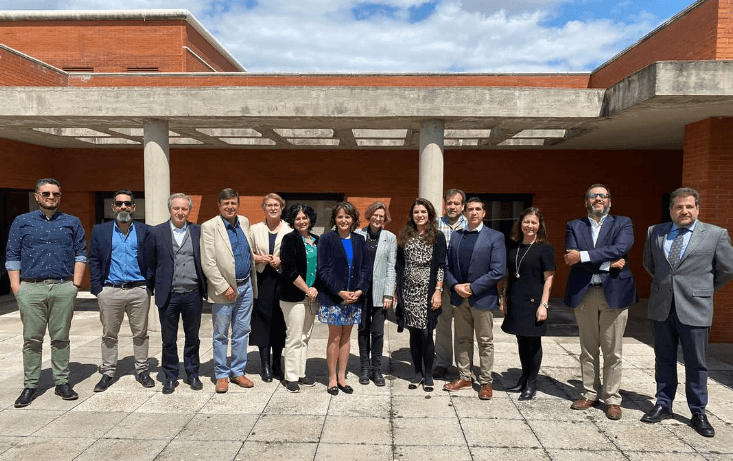Conference
‘Populismo y derecho internacional: reflejos en Brasil’, Impact, risks and opportunities of populism in Europe and Latin America
Universidad Complutense de Madrid (Cátedra Jean Monnet), Spain
Professor Paula Wojcikiewicz Almeida (FGV Law School) participated in the conference 'Impact, risks and opportunities of populism in Europe and Latin America' that occurred in Barcelona and Madrid between May 3rd and 6th. The participation was the result of the cooperation between FGV Jean Monnet Centre of Excellence, coordinated by Professor Paula Wojcikiewicz Almeida at the Getulio Vargas Foundation Law School in Rio, and the Jean Monnet program coordinated by Professor Paulina Astroza (Universidad de Concepción), who organised the event.
Other universities and entities involved included Fundación Carolina, Real Instituto Elcano, Universidad Complutense, Barcelona Centre for International Affairs, Universidad Mayor de San Simón, Universidad Adolfo Ibáñez, Universität Siegen, Queen Mary University of London, Universidad de Chile, Universidad Cardenal Herrera, Universidad Nacional Autónoma de México, Universidad Autónoma de Madrid e Univertità Degli Studi di Perugia.
The conference was in the scope of the “Programa de Estudios Europeos” of the Universidad de Concepción. Lecture themes comprised the concept of populism, populism in Europe and Latin America. On May 5th, Professor Paula Wojcikiewicz Almeida spoke at the Universidad Complutense de Madrid on the topic "Populismo y derecho internacional: reflejos en Brasil", besides moderating two other panels on Populism in Europe, the first concerning 'El Estado de Derecho y la Democracia Iliberal' and the second on 'la influencia de las redes sociales'.
From the perspective of populism through the lens of international law, the research presented by Professor Paula Wojcikiewicz Almeida involved two main stages: (1) analysis of discursive and rhetorical populist practices, and (2) international legal practices which can be classified as populist. Thus, the research aimed to reflect on whether or not the discursive practices of the Brazilian government materialise in relevant international normative changes that can be classified as populist. Furthermore, the professor's lecture addressed the future perspectives for Brazilian foreign policy with the possible results of the next elections.
Previous round tables had discussed the concept of populism, populism in Europe and populism in Latin America. It was in the latter that Professor Paula Wojcikiewicz Almeida's presentation was inserted. Other participants at the table, moderated by Javier Sajuria (United Kingdom), were Juan Ignacio Celis (Spain), Sergio Toro (Chile) and Susanne Gratius (Spain).
For more information, check:
https://pee.udec.cl/objetivos-proyecto-jm-sobre-populismo

